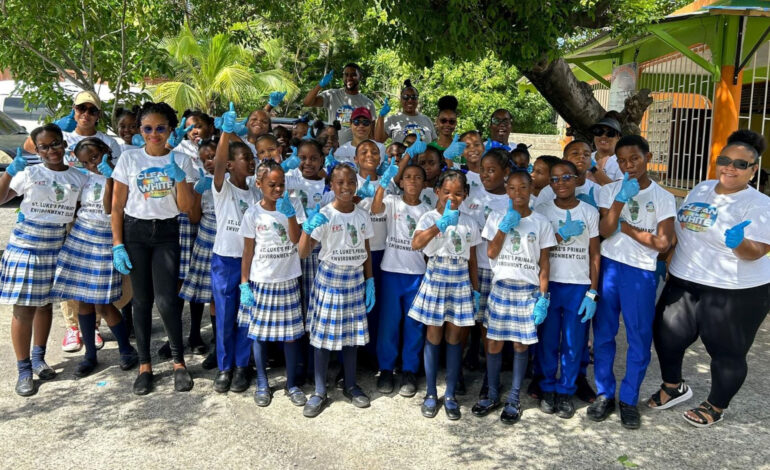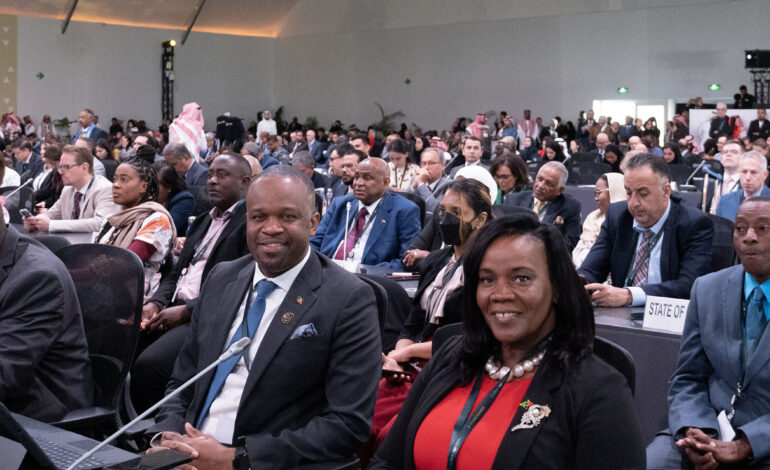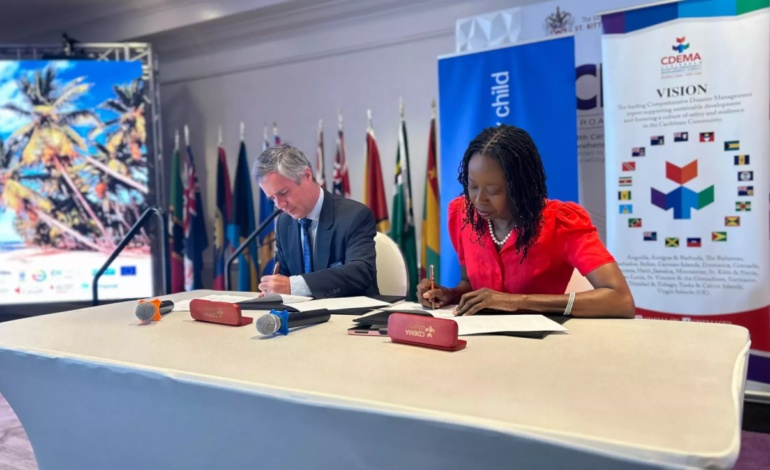
As global negotiations on a plastics treaty remain stalled following the fifth session of the Intergovernmental Negotiating Committee (INC-5) in South Korea, which deferred critical decisions on production limits and reduction targets to 2025, two Eastern Caribbean territories are taking proactive steps to address plastic waste. Dominica and Grenada, through the Recycle OECS Project, are showcasing sustainable waste management practices that could serve as a model for Small Island Developing States (SIDS). By leveraging strategic community engagement and private sector partnerships, these territories are proving that effective recycling systems can be achieved, even in resource-limited settings.
Funded by the European Union (EU) with implementation by the Organisation of Eastern Caribbean States (OECS) and Agence Française de Développement (AFD), the Recycle OECS Project is developing and testing a regional model for sustainable recyclables management. The Project aims to create adaptable frameworks that address the unique waste management challenges faced by small islands while building lasting mechanisms for collection, processing, and sustainable financing.
In Grenada, the tourism sector’s engagement with recycling initiatives continues to deepen through the Grenada Hotel and Tourism Association’s (GHTA) expanding commitment. Following the Association’s earlier partnership with the Grenada Solid Waste Management Authority (GSWMA) where 90% of member properties committed to implementing waste separation systems, GHTA has now extended its environmental stewardship through an EC$40,000 investment in community-based recycling. This new partnership with the Grenada Green Group (G3) ensures the sustainability of successful community collection initiatives initially launched under the Recycle OECS Project.
“This progression from individual property participation to funding community-wide initiatives demonstrates the tourism sector’s growing recognition that environmental sustainability requires investment beyond their immediate operations,” notes Dr. Didacus Jules, Director General of the OECS Commission.
Similarly in Dominica, dubbed the “Nature Isle,” the Zero Waste Schools Programme has catalyzed an impressive coalition of civil society support, with 29 private sector partners joining forces with schools and youth clubs to create a sustainable waste collection network. This initiative has already diverted over a quarter million plastic bottles from landfills while creating a model for community-based recycling that’s proven resilient enough to maintain momentum even during school breaks. “These developments indicate that there is a maturing approach to Environmental, Social, and Governance (ESG) commitments in the Caribbean tourism context,” Dr. Jules said.
These initiatives, supported through the Recycle OECS Project, are helping establish frameworks for sustainable waste management that address the unique challenges faced by SIDS:
- Leveraging tourism sector resources to support broader community environmental initiatives;
- Building civil society coalitions that can sustain long-term recycling efforts;
- Creating mechanisms for private sector environmental investment that extend beyond immediate operational footprints; and
- Demonstrating how environmental initiatives can align with and support sustainable tourism objectives.
“What we’re seeing in both Grenada and Dominica is the emergence of partnership models that could be particularly relevant for other small island states,” explains Chamberlain Emmanuel, Head of Environmental Sustainability at the OECS Commission. “These initiatives demonstrate how tourism-dependent economies can mobilize industry resources to support environmental goals while building the community engagement necessary for successful waste management programs.”
These emerging partnership models demonstrate how the Recycle OECS Project is achieving its goal of developing replicable solutions for sustainable waste management in small island contexts. By creating mechanisms for tourism sector investment in community environmental initiatives while building robust civil society coalitions, these examples offer practical insights for other SIDS seeking to establish sustainable waste management systems that can contribute to both local environmental protection and global plastic pollution reduction goals.
As noted by the OECS Commission’s Director General:
“These initiatives show how small islands can develop locally appropriate systems that not only address immediate waste management challenges, but also contribute meaningfully to global environmental objectives. They represent exactly the kind of innovative, sustainable solutions the Recycle OECS Project was designed to catalyse.”












